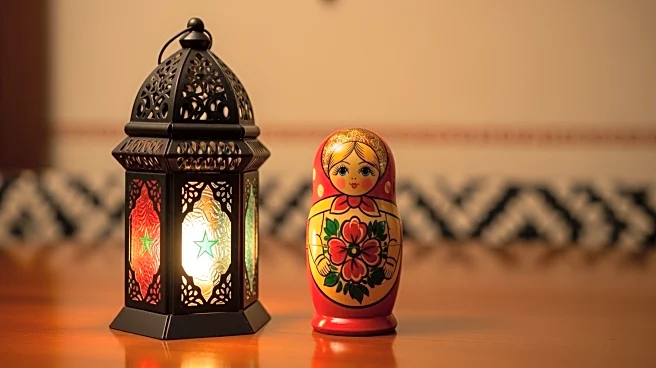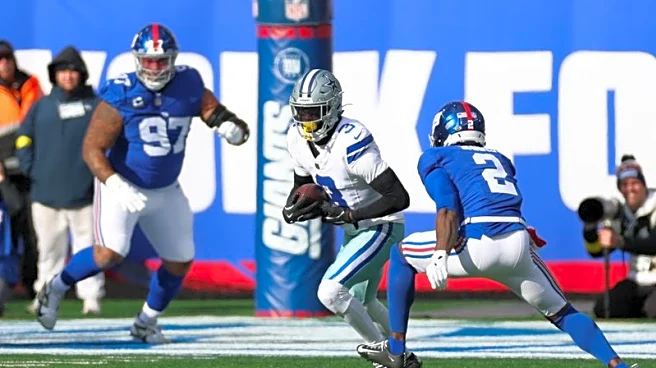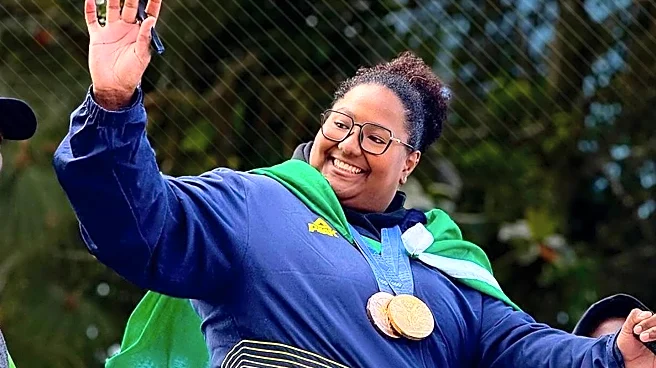What's Happening?
Syria's interim President Ahmed al-Sharaa met with President Vladimir Putin in Moscow, marking the first high-level talks since the fall of Bashar al-Assad. The meeting focused on re-establishing relations
between Syria and Russia, with Sharaa expressing a desire to redefine these relations to ensure Syria's sovereignty and stability. Russia has pledged to support Syria by providing food, medication, and assistance in repairing infrastructure. However, tensions remain as Sharaa is expected to request the extradition of Assad, who has been granted asylum in Russia.
Why It's Important?
The meeting signifies a potential shift in Syria's foreign policy, emphasizing the importance of Russian support in stabilizing the country. Russia's involvement could be pivotal in Syria's economic recovery and infrastructure rebuilding. However, the request for Assad's extradition could strain relations, as Russia is unlikely to comply. This diplomatic engagement highlights the complexities of post-conflict alliances and the balancing act required to maintain sovereignty while securing international support.
What's Next?
Syria will likely continue to seek international partnerships to aid its recovery, with Russia playing a central role. The outcome of Sharaa's request for Assad's extradition could impact future diplomatic relations. Additionally, Syria's internal political developments, including the filling of parliamentary seats, will influence its ability to implement reforms and maintain stability.
Beyond the Headlines
The meeting underscores the geopolitical dynamics in the region, with Syria navigating its relationship with a powerful ally while addressing internal challenges. The potential extradition of Assad raises questions about accountability and justice in post-conflict governance, reflecting broader ethical considerations in international diplomacy.










